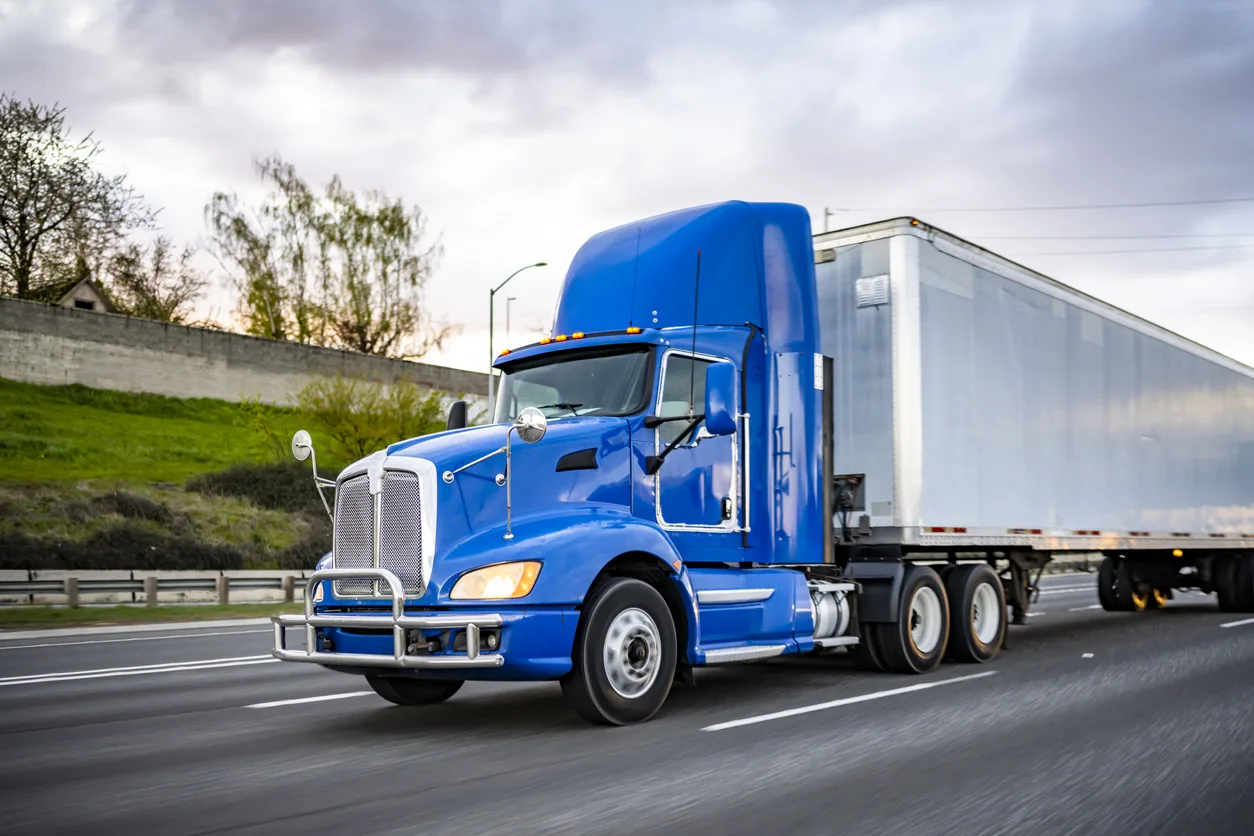
Advances in transportation technology are reshaping highways. One of the most consequential innovations is electric semi-trucks. These trucks have environmental and operational benefits, but they also pose new challenges and potential dangers. At Zehl & Associates, we’ve seen firsthand how dangerous 18-wheeler accidents can upend lives in an instant. That’s why our undefeated truck accident lawyers are watching this new technology closely. With Billions recovered for crash victims, including some of the largest verdicts and settlements in Texas and U.S. history, we know what it takes to hold trucking and transportation companies fully accountable when safety takes a backseat.
Here is what you need to know about electric semis.
What Are Electric Semi-Trucks?
Electric semi-trucks are large trucks that run on batteries instead of diesel or other fuels. They are becoming more common as regulators push to reduce greenhouse gas (GHG) emissions, lower fuel costs, and promote cleaner transportation.
Unlike smaller electric cars, these trucks need very large batteries to move heavy freight over long distances. This creates challenges because manufacturers must balance power, weight, efficiency, and safety.
The Good: Benefits and Advantages
Electric semi-trucks bring several benefits that make them appealing to both trucking companies and the public. Benefits and advantages include:
- Cleaner air: Electric trucks do not produce exhaust, which cuts down on pollution. This helps improve air quality, lowers greenhouse gases, and reduces breathing problems in busy areas.
- Lower costs over time: Electricity is usually cheaper than diesel fuel. Because these trucks have fewer parts that wear out, they often need less maintenance and repair.
- Quieter operation: Electric trucks run much more quietly than diesel models. This reduces stress for drivers and makes life easier for people living near trucking routes.
- New safety technology: Many electric trucks include sensors and software that help prevent accidents. Features like automatic braking, collision warnings, and system checks may improve safety on the road.
These advantages explain why the trucking industry is turning toward electric vehicles. They may save money, improve public health, and make highways safer. While there are still risks, electric semis represent a promising step forward in modern transportation.
The Bad: Risks and Challenges
Electric semi-trucks are promising, but they also bring new risks that affect safety and liability. Some of these risks include:
- Battery risks and fires: Lithium-ion batteries can overheat or ignite. These fires are harder to control and more dangerous after a crash.
- Increased vehicle weight: Large battery packs add significant weight to the truck. This can lead to longer stopping distances and more severe damage in a collision.
- Range and infrastructure limits: Charging stations are not as widely available as fuel stations. Shorter ranges may force detours, delays, and more driver fatigue.
- Software and design defects: Sensors and software play a major role in these vehicles. A glitch or defect could cause a crash and create grounds for product liability claims.
- Complex liability issues: Responsibility may not stop with the driver or trucking company. Manufacturers, software developers, and maintenance providers may also be at fault.
Another concern is that many first responders are not fully trained to manage electric truck accidents. Fires involving massive battery packs can burn for hours. Water-based suppression often does not work.
Victims of these crashes may face more severe injuries and higher costs than in a standard truck accident. This can mean greater medical bills, lost income, and the need for long-term care.
Legal Implications in Personal Injury Cases Involving Electric Semi-Trucks
Electric semi-trucks raise unique liability questions that can complicate personal injury cases when they are involved in accidents. Personal injury lawyers must be prepared to dig deep to build a strong case.
This may include:
- Investigating the accident to determine whether a battery failure, software malfunction, or design defect caused the crash.
- Evaluating whether a driver, trucking company, manufacturer, parts supplier, or maintenance provider may be liable.
- Getting expert testimony in battery chemistry, engineering, or crash dynamics may be required to explain how the accident happened and to prove damages.
- Assessing whether the truck and its operators followed safety standards, recall notices, and regulatory rules.
Liability is not always straightforward. A trucking company may blame a software defect, while a manufacturer may argue that improper maintenance caused the crash. Sorting out these disputes requires detailed evidence, reliable expert input, and a working knowledge of electric truck technology.
Get Help With Your Truck Accident Case
Houston truck accident lawyers can assist with these cases. Electric truck crashes often result in serious injuries, and victims may be entitled to compensation for medical bills, rehabilitation, lost wages, pain and suffering, and long-term disability.
Identifying every responsible party is an important step in making sure victims recover the compensation they need. To learn more, contact the Undefeated truck accident lawyers at Zehl & Associates. We offer a free consultation.
We proudly serve Harris County, Midland County, and throughout the state of Texas. We are located in Houston and Midland and throughout the state of Texas:
Zehl & Associates Injury & Accident Lawyers – Houston
2700 Post Oak Blvd #1000, Houston, TX 77056
(888) 603-3636
Open 24 hours

Zehl & Associates Injury & Accident Lawyers – Midland
306 W Wall St Suite 701, Midland, TX 79701
(432) 220-0000
Open 24 hours